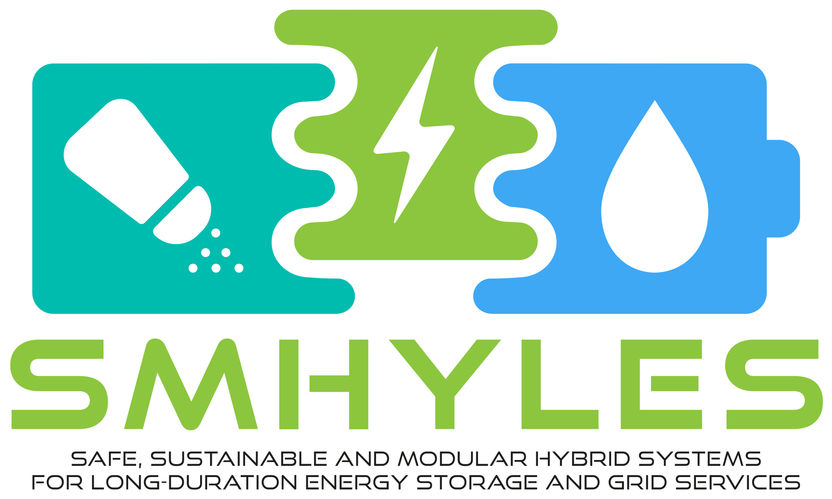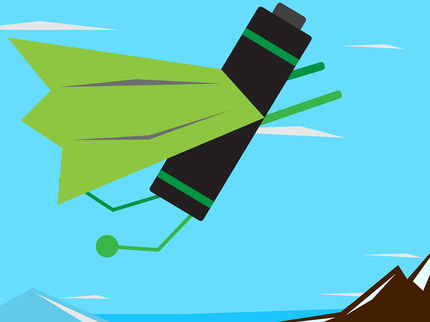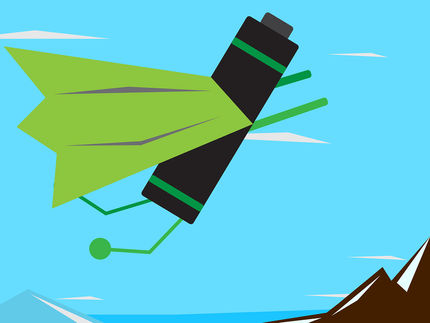EU project SMHYLES develops novel salt- and water-based hybrid energy storage systems (HESS) on an industrial scale
The consortium includes 16 partners from seven countries
One of the greatest challenges of the 21st century is the transition to climate-neutral energy sources. Here, reliable energy storage plays a key role, as production and load peaks in the electricity grid require flexible storage systems that can be used for a wide range of applications. The recently launched EU project SMHYLES aims to develop innovative, sustainable, and safe salt- and/or water-based hybrid energy storage systems. These combine two storage technologies and their respective advantages: long duration capacity and high power density.

Logo of the EU project SMHYLES
© EU-Projekt SMHYLES
The new low-CRM (critical raw materials) systems will also contribute to Europe’s energy independence. The SMHYLES project, coordinated by the “Fondazione Bruno Kessler” (Italy), is funded by the EU under Horizon Europe with around €6 million for a period of four years from January 2024 on. The consortium includes 16 partners from seven countries.
Each storage technology has technical and economic characteristics that are ideally suited for a specific application. These characteristics include, for example, energy and power density, reaction time, environmental sustainability, and safety. Redox flow and salt batteries have a large storage capacity but can only be charged and discharged slowly. A supercapacitor, on the other hand, has fast charging times but cannot store large energy quantities over a long period of time. Only the efficient combination of both functionalities provides the necessary performance and flexibility in use.
"Modern energy storage systems need to guarantee security of supply, performance and safety, have flexible management software and be manufactured and operated in the most sustainable and environmentally friendly way possible”, explains SMHYLES coordinator Edoardo G. Macchi, Head of Battery and Electrification Technologies Unit at the Fondazione Bruno Kessler in Trento, Italy.
Combining sustainable batteries with other storage systems
The central goal of the SMHYLES project is to develop and demonstrate such innovative, safe, and sustainable hybrid energy storage systems on an industrial scale. In SMHYLES, a water-based supercapacitor and either a redox flow battery or a salt battery are to be combined to create innovative hybrid energy storage systems.
The novel hybrid storage systems developed in SMHYLES should be able to store energy over a medium to long period of time and release it very quickly. At the same time, they will reduce the use of critical raw materials, be safe to use (as they are not easily flammable), cost-effective and recyclable. Compared to conventional solutions, these new storage systems are expected to have a 40 per cent lower carbon footprint, also thanks to novel recycling solutions, and a 20 per cent higher reliability and availability, which should make our renewables-based power grids more resilient.
Demonstrators in Portugal and Germany
The SMHYLES activities include the development, construction, deployment and demonstration of an aqueous hybrid energy storage system and a salt-based hybrid energy storage system, as well as an extension of the storage duration of an existing hybrid system. During the second half of the project, various use cases will be trialled for 12 months in the three pilot plants in Portugal and Germany:
1. island grid (Portugal, Graciosa): Off-grid energy system with the installation of a nickel-carbon water-based supercapacitor and a salt battery supporting the island electric grid.
2. industrial microgrid (Portugal, Maia): Further development of a vanadium redox flow battery and combination with a water-based supercapacitor, with the aim to increase the level of renewable energy source penetration in the energy mix, as well as the electric vehicle charging support.
3. pilot plant expansion (Pfinztal, Baden-Württemberg, Germany): Capacity expansion of a redox flow battery and combination with a supercapacitor (from the EU project HyFlow) and a wind turbine; this should enable multi-day energy storage and increase grid reliability.
Project partners
- Landshut University of Applied Sciences, Germany
- Fraunhofer Institute for Chemical Technology ICT
- Bavarian Research Alliance, Germany
- CIRCE, Spain
- SCHMID Energy Systems GmbH, Germany
- C2C-NewCap, Portugal
- SONICK S.p.A., Italy
- Capwatt, Portugal
- Capwatt Services, Portugal
- Graciolica Lda., Portugal
- INESC TEC, Portugal
- Tomas Bata University in Zlín, Czech Republic
- INDRIVETEC AG, Switzerland
- RINA Consulting, Italy
- Comete Engineering International, Tunisia
See the theme worlds for related content
Topic World Battery Technology
The topic world Battery Technology combines relevant knowledge in a unique way. Here you will find everything about suppliers and their products, webinars, white papers, catalogs and brochures.

Topic World Battery Technology
The topic world Battery Technology combines relevant knowledge in a unique way. Here you will find everything about suppliers and their products, webinars, white papers, catalogs and brochures.






























































